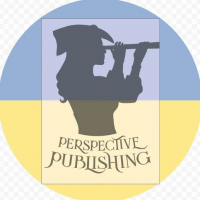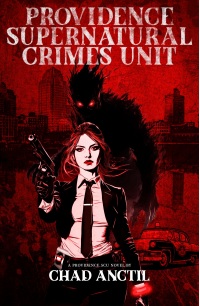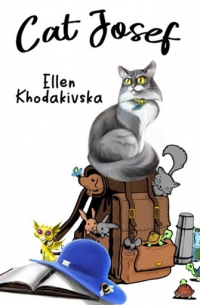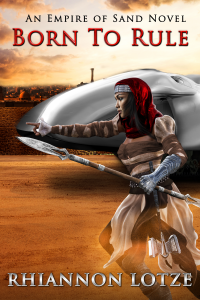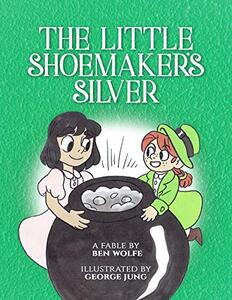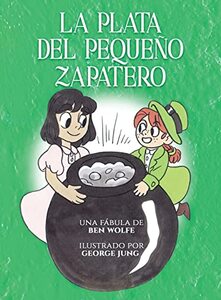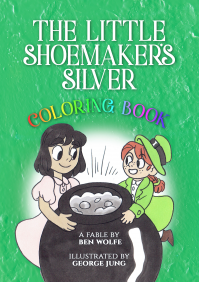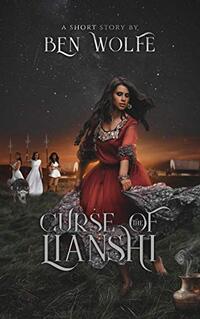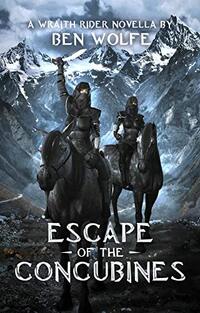Perspective Publishing LLC Interview Published on: 07, Mar 2023
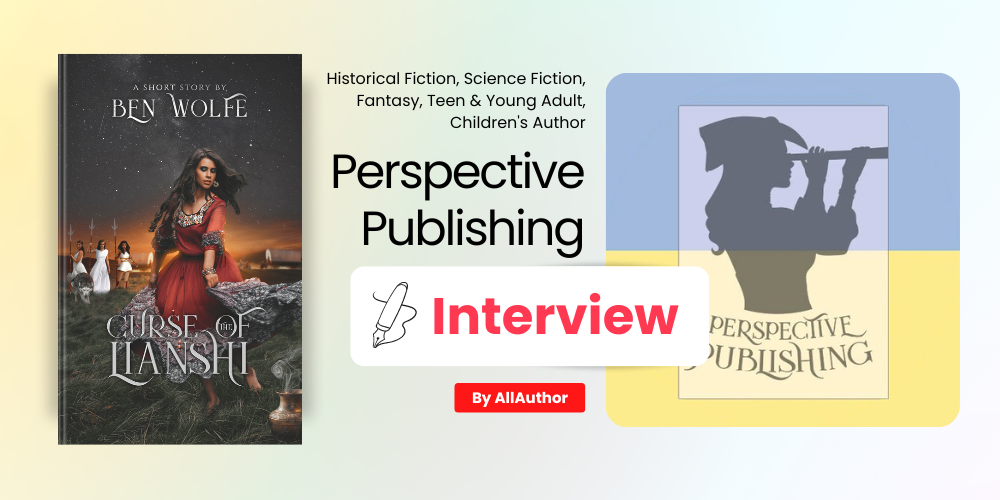 What are your goals with Perspective Publishing?
What are your goals with Perspective Publishing?
We want to promote developing new writers and their stories when we recognize talent at the highest level. While the number of writers has increased with self-publishing becoming easier, the quality has in a large number of instances gone down due to a lack of editing on the part of authors. Likewise, the number of books being published by traditional authors has decreased by roughly 20,000 titles a year between 2010 and 2020 based on the numbers put out by the Association of American Publishers (AAP). This is largely due to consolidation in the publishing industry. As a result, many authors who in the past would have been traditionally published are not getting the same opportunities they were even 10 years ago. We, therefore, look for authors who have recognizable talent, great editing skills, and fabulous storytelling ability within the genres we publish and seek to give them a chance to get traditionally published. We may not be as well known or pay as much. We simply can't compete on that same level financially. But we can pay authors more than what most authors make in their first couple years as an advance and cover costs associated with making their book stand out. These include copyright costs, editorial support, cover design, enhanced distribution, and marketing. These costs all add up for first-time and developing authors if they want their books to do well and have a chance of making the bestseller list in their categories.
Maybe we aren't the huge contract they hoped for, but even J.K. Rawlings spent her time in the trenches writing and her first publication run in the UK was only 500 copies. It was her publisher there that took a chance with her and landed her an even larger opportunity. The thing is, maybe they get a smaller publishing contract with us and we help them land an agent for their next book. We WANT our authors to succeed. If they land a huge deal on their next book or series, it will generate interest in their other, earlier books. As FDR once said, "A rising tide lifts all boats."
Is it important that an author has other friends that are writers as well?Yes, we believe that it is important that an author has a group for feedback, reviews, and discuss the business of writing. We also think it is important that writers have other writers to share their ideas and experiences with. This is also true in most other professions as well. This approach leads to greater creativity and inspiration. It also improves professional knowledge. For writers, it is especially important to the development of advanced readers and reviewers.
Do you remember the first book that you published?Yes. It wasn't that long ago that we signed the books by Ben Wolfe, who is an international bestselling epic fantasy and children's book author. Our first authors signed were Ben Wolfe (epic fantasy and children's books), Ellen Khodakivska (juvenile fiction), and Rhiannon Lotze (YA science fiction). We remember all of these as well as an exceptional author in the genre of urban fantasy who we are trying to sign right now that would make an amazing additional author to our publishing label.
How was Perspective Publishing started?A couple of people decided that other authors besides themselves had exceptional talent and deserved to be published but lacked the publishing knowledge and marketing expertise to self-publish without a steep learning curve and didn't have the desire to self-publish. We might not pay huge advances, but we do pay and we give authors who are exceptionally talented an alternate opportunity to the big five to be traditionally published in the genres we publish in.
How does the book publishing business work?That is unfortunately too long of an answer to answer here, but we would recommend videos at Alyssa Matesic who used to work as a literary agent and answers many questions about writing and submitting your work. She touches on this very answer in a series of videos that I would recommend every writer subscribe to. While we don't believe everyone gets it 100% right, the topics she discusses are very accurate and often driven by questions about the business of writing that authors themselves have.
Do you prefer handwritten manuscripts or digital manuscripts?While most bibliophiles love holding a good book, we have gone green, and digital manuscripts are far better for the environment. However, we still recognize that people still love print books and so we do our best to give them the opportunity to read our authors in that format.
What does a traditional book publisher's business model look like?Request #MSWL (manuscript wish list) Slog through MANY submissions to identify finalists Notify people when we decide we will not move forward with them. While many believe this is the hardest part, it really is just the volume that is difficult, and they don't all come in at a steady rate, so you can easily get overwhelmed. You can actually tell pretty quickly if someone has the skillset and storytelling talent you are looking for in the genre you are looking for. Sometimes your #MSWL guides you to what you were looking for before you even really knew what it was. But identifying the stories we can get excited about is the best part. I know everyone wants to hear that writing rejection letters is difficult, but it really isn't. If something doesn't fit what we say we are looking for or is not up to the caliber of other submissions, it is relatively easy and far better for the author that we let them know as soon as possible without going into great detail. This prevents hard feelings, debates, and personalized responses. It keeps it professional. Forward the finalists to an editorial board for consideration Offer phase where we let an author know that we would like to contract rights to their book(s) Sign the contract, and pay the first phase of the advance. Editing phase Copyright the work on behalf of the author indicating the rights that we acquired Schedule the cover design with our cover designer(s) Complete a checklist of pre-press objectives (a short list of examples includes interior layout and design, approving cover design, ARCs [advance reading copies] for reviews, dust jacket description, creating tweets for the cover reveal, Instagram and social media promotional material, revise and implement the marketing plan for the book, and implement distribution plan including release date, schedule signings with local book stores)...this is a partial list of what we go through for each book. It really is about working a process. Launch the book, and promote the book using publicity, social media campaigns, distributor marketing, and through book signing events. There is no one path to success in publishing but it all starts with a well-written story with great characters and a cover that captures that story visually. I know there are authors out there that don't invest in a cover. If you are a bestselling author, your name is your brand and that's what you use to sell books. But selling books is an art form also and people love the visual element of capturing their interest by telling a thousand words in one image on the cover, so we tell our authors...it's VERY important to get that part right. Continuously promote the author and their book to promote book sales, and collect money from book sales through various sales outlets. This only sounds easy. Keeping track of revenue from these sales channels, all of whom pay according to what is easiest for them, can be challenging. Once we collect what we have paid in an advance, we begin paying royalty commissions on the books, bi-annually or quarterly, depending on the amount of revenue generated and what is stipulated in the contract. Each book has a different path. They are not all the same, but the processes are. We guide the author through these steps. It takes time and superhuman patience is a tool every author needs to have in their toolbox if they are getting traditionally published.
What is the future of book publishing?Honestly, I think AI artificial intelligence will not end up writing the books we read in the future due to rights issues, but I do think that there will be subscription models similar to those currently in use by ChatGPT that will revolutionize writing. Many genres like historical fiction, historical romance, epic fantasy, mystery...to name a few of literally hundreds of genres of writing both fiction and non-fiction are HEAVILY reliant on research for historical accuracy to suspend disbelief, create believable characters and settings, and for world-building. For nonfiction, research is critical, and there is as much disinformation out there now as there is researched information from legitimate and reputable sources.
AI is going to revolutionize the way we research and identify the information we are looking for. I used ChatGPT for the first time a few weeks ago and this last week subscribed to the service. I write myself and accomplished what would normally take me about four months to research in a matter of three hours. It doesn't do the work or write anything for you but it accelerates your access to information and narrows a field of research faster than we can as humans and will even help you build an outline for a book if given the proper inputs. If you ask for a list of inputs, much like in this interview and you answer those input requests with some detail, it will generate a detailed outline based on the information you give it. It helps research, yes, but it also helps organize your writing and your thoughts at what feels like lightspeed making it VERY easy to write a story. It directs human creativity and inspiration at a rate that will revolutionize us as a society and have as much impact as the invention of the personal computer did.
Do you read the kind of books you publish?Yes. If I didn't, this would feel too much like work. The key is to publish what you love and the effort will show in everything that you do. The same goes for our editors. For them, this is like reading a favorite story and making sure that it is presented in such a way that nothing takes the reader out of the reading experience. We want the readers to be immersed in the stories our authors write.
In your experience, what is the key to developing a good team?A spirit of collaboration and the ability to inspire each other are two key elements of building a great team.
Name a time when your patience was tested. How did you keep your emotions in check?It doesn't happen. We work hard here to be excited about the books we acquire rights to and promote. It is a labor of passion for us. We work hard to give the books we publish every chance to succeed.
Which of the authors on your list are you most excited to work on?Each is a new book in a different genre. Every story is a new adventure. It's kind of like asking which arm is your favorite. Regardless of whether you are right or left-handed, try doing stuff without your other hand.
What steps have you taken to ensure the continuing success of your company?We offer contracts only to those authors we believe in and can truly feel passionate about. We would rather walk away and not publish anything than publish a book that isn't a great fit for us. Every successful publisher has gotten there by promoting great books. THAT is our mission.
Is there anything new that you're working on?Personally, everyone that works here writes, so we are all working on something of our own in addition to helping other talented authors succeed.
Why did you choose AllAuthor?You were recommended by one of our authors, Ben Wolfe who showed us what you do for him and we wanted to put AllAuthor to work promoting our other authors also.
Share Perspective Publishing LLC's interview
Perspective Publishing provides traditional publishing paths for talented emerging authors in genre fiction seeking nice deals. Their first authors signed were Ben Wolfe (epic fantasy and children's books), Ellen Khodakivska (juvenile fiction), and Rhiannon Lotze (YA science fiction). They aim to promote developing new writers and their stories when they recognize talent at the highest level.
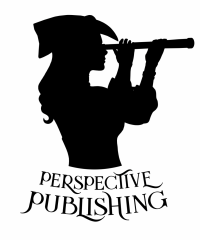 Perspective Publishing Catalog
Genre: Historical Mystery, Mystery, Supernatural Suspense, Action & Adventure, Historical Romance, Paranormal Romance, Time Travel Romance, Historical Fiction, Science Fiction, Fantasy, Teen & Young Adult, Children's, History
Perspective Publishing Catalog
Genre: Historical Mystery, Mystery, Supernatural Suspense, Action & Adventure, Historical Romance, Paranormal Romance, Time Travel Romance, Historical Fiction, Science Fiction, Fantasy, Teen & Young Adult, Children's, History
